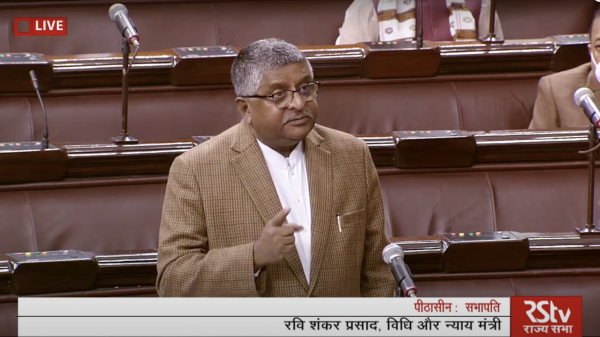The Parliamentary Standing Committee on Science and Technology, headed by Congress’ Jairam Ramesh, has flagged that the DNA Technology Bill 2019 could be misused “to target certain sections of society”. The Committee, which submitted its report to Parliament on February 1, also suggested changes to the composition of the DNA Regulatory Board, and flagged concerns with having databases of DNA profiles of suspects and undertrials, apart from several making several other recommendations.
The DNA Technology (Use and Application) Regulation Bill, 2019, aims to establish the identity of victims, offenders, undertrials, missing people, and unknown dead people, as well as of suspects and undertrials. It proposes a DNA Regulatory Board to address concerns around quality, security, and accuracy of data. The Board will advise the central and state governments on labs and data banks, lay down guidelines, grant accreditation, and establish national and regional DNA data banks to house DNA profiles.
Rajya Sabha chairman Venkaiah Naidu had referred the bill to the Standing Committee of Science and Technology, Environment, Forests and Climate Change in October 2019. A similar bill was passed in Lok Sabha in January 2018 but could not clear Rajya Sabha, and then lapsed with the dissolution of the previous Lok Sabha.
Department of Biotechnology’s notes on the bill
According to the Department of Biotechnology’s notes to the Committee, DNA fingerprinting is already in practice and the evidence has been used in criminal court cases “with success”. The department cited NCRB figures that 40,000 unidentified bodies, and 100,00 children go missing every year. The secretary and other officers of the Department had given their views to the Committee in October 2019.
DNA identification will be applicable across union ministries, the Department said: In the Home Ministry for forensic crime investigations; Defense Ministry for body identification, Disaster Management Authority for unidentified bodies; Women and Child Ministry for child trafficking ; for investigation bodies such as the CBI and NIA for investigations of “issues of importance to public safety and national security”, and even to the Commerce Ministry for certification and identification of produce. The Department told the Committee that the bill has accounted for privacy, confidentiality, and data protection.
It said that 60 other countries, including the UK, US, and even Bangladesh; scientists from Bangladesh were trained in India and formulated their own law thereafter, the Department said, adding that:
- DNA testing in India is currently done with 30-40 experts in 15-16 labs undertaking 3,000 cases per year, which only represents 2-3% of the need.
- The aim of the bill is to identify missing children and unknown deceased people, including disaster victims, and to apprehend repeat offenders of heinous crimes.
- A bill will bring in standards, quality assurance, accreditation to labs, and regulate use of DNA profiles.
Experts consulted by Committee
The Committee consulted 10 non-official experts and 5 official and expert witnesses. The former included two members from PRS India and Centre for Internet and Society, Apar Gupta from Internet Freedom Foundation, and Arghya Sengupta from Vidhi Centre for Legal Policy. The latter included the director-general of the Gujarat Forensic Sciences University (GFSU) and the director of the Centre for DNA Fingerprinting & Diagnostics (CDFD), Hyderabad.
Separately, Jairam Ramesh sought the views of “some distinguished jurists and police administrators”, including retired Supreme Court justices Madan Lokur and BS Chauhan and former CBI director RK Ragahavan (see below for full list).
Concerns and Recommendations
1. Possible misuse to target certain sections: A number of members expressed concern about the misuse of DNA technology to “to target different segments of our society based on factors like religion, caste or political views”. These fears are not “entirely unfounded”, and it does not “negate the need” for such a law especially when DNA technology is already in use, the Committee’s report added.
“In fact, its use in recent months has exposed a false encounter in which innocents were killed contradicting initial claims made that they were militants,” the Committee said.
The Committee, therefore, underlines with utmost importance that it is essential the Bill enables the creation of an ecosystem that benefits from scientific evidence like DNA, therefore allowing the legal system to become experienced in the use and appreciation of DNA evidence. This will enable the legal system to understand the technology’s limitations, identify when it is appropriate to use DNA technology to solve crimes appropriate and over time, substantially minimize all possible errors. Widespread and extensive training is of paramount importance.
The Committee feels strongly and unanimously that if a statutory Board is to be set up—which is indeed the purpose of this Bill—then it should not only be professional but also be independent and not comprise almost wholly of serving government officials. This is a glaring shortcoming of the Bill that the Committee has sought to rectify keeping the larger public interest in mind. Even so, some Members have expressed their fears that this Bill when it becomes a law could be used to target certain sections of our society. The Government must assuage these fears both in Parliament and outside. [emphasis supplied]
In order to prevent misuse, as in by targeting certain sections, many members of the Committee believed that the application of the bill must be limited to victims, offenders, missing persons, and unknown deceased, and leave out undertrials and suspects. However, the Committee itself refrained from changing the Long Title.
2. No need for indices: Under the bill, every DNA Data Bank will maintain multiple indices for DNA profiles, such as crime scene, suspects’ or undertrials’, offenders, missing persons, and unknown deceased persons. For instance, a crime scene index will include DNA profiles of DNA samples gathered from an actual or suspected crime scene, from actual and suspected victims, and so on. A missing person’s index contains DNA profiles of samples from an unidentified human bodies or the family of the missing person. They are essentially databases of DNA profiles gathered for different purposes laid down in the bill.
According to the Committee, the labs don’t need to maintain indices, something mentioned in the bill, as there is an additional risk with multiplicity of indices and databases. Some members, including Ramesh, felt that these indexes are unnecessary for solving crimes and can be misused to target certain categories of people. But overall, the Committee did not recommend its deletion from the Bill.
2. Crime Scene Index is wide, should have restrictions: The Crime Scene Index is a list of entries of DNA profiles in a DNA Data Bank derived from DNA samples found in crime scenes (including suspected crime scenes), victim or suspected victim, anything worn or carried by the victim when an offence was committed (or suspected to have been committed), or of persons associated with an offence. According to the Committee:
- A national bank of crime scene DNA profiles presents the risk that it will “likely include virtually everyone”, including people who may have nothing to do with the crime, and people whose DNA material may have been inadvertently transported to the crime scene.
- Crime scene DNA can be used in investigation and trial, but should not be put in a databank and should be destroyed if a case concludes with acquittal. DNA profiles of only convicts could be included in the DNA data bank. Some members felt that the “crime scene index” is unnecessary and is not a required feature to solve crimes. Some other members favoured the retention of this clause. The Committee recommended the retention of the clause, but “hopes” that the government will address the concerns raised in the revised version.
4. Issues with missing persons, offenders index:
- Missing Persons Index means a list of entries of DNA profiles in a DNA Data Bank derived from unidentified human remains, personal effects of missing persons, bodily substances of relatives of missing persons. The bodily substances of relatives of missing persons should be taken with their written consent, the Committee recommended.
- Offenders Index means a list of DNA profiles of samples taken from offenders in a DNA data bank. The term offender should be defined in the amended bill before defining an offender’s index in light of removal from the Schedule. “The Committee recommends addition of sub-section Clause 2 (1)(xviii) with the following words, “Offender means any person convicted of an offence and punished with imprisonment of 7 years or more,” the Report said.
5. No need for Regional Data Banks: A National DNA Data Bank will suffice and regional banks are not required since it does not provide “any additional benefits”, and instead “creates more vulnerability to the accuracy, integrity and security of the entire system”.
6. Call it profiling, not testing: The bill defines a DNA laboratory as a central or state government lab which is accredited under the Act to perform DNA testing. The Committee said the word testing should be avoided to avoid misunderstanding, and be replaced with “profiling”.
7. Better define “DNA profile”: The current definition of DNA profile is “the result of analysis of a DNA sample for establishing human identification in respect of matters listed in the Schedule”. According to the Committee, this should be changed to:
‘DNA profile’ with its grammatical variations and cognate expressions, means a phenotype neutral DNA pattern that establishes only the genetic identity of offenders, missing persons or unknown deceased persons, and not the characteristics of an individual such as physical appearance, behaviour or health status.
This is more scientifically accurate and relevant to the amended bill, the Committee said.
8. Changes to the composition of the DNA Regulatory Board: The bill proposes that the Board be chaired by the secretary to the Department of Biotechnology and be vice-chaired by an eminent person in biological sciences and genetics with at least 25 years of experience. The central government would make both these appointments as well as the following appointments as members:
- Directors-General of NIA and CBI or their nominees not ranked below Joint Director; directors of the DNA Fingerprinting and Diagnostics, Hyderabad, National Accreditation Board for Testing and Calibration of Laboratories, New Delhi, and Central Forensic Science Laboratory
- One officer each (not below the rank of Joint Secretary) in Ministry of Law & Justice and Ministry of Science and Technology
- One eminent expert in biological sciences with 25 years of experience
- An officer not ranked below Jt Secretary in to central government with knowledge and experience in biological sciences as Member-Secretary to be nominated by the central government – this person can be from biological or genetic expert, the Committee recommended
- DGP of a state
- A member of the National Human Rights Commission – to be nominated by chairperson
The Committee said its “strong view” is that the DNA Regulatory Board should be “independent and professional”. “There is no precedent for a serving Secretary to the Government of India also being the Chairperson of an independent regulatory board under the administrative jurisdiction of the Department/Ministry concerned”, the Committee said. It’s suggestions are:
- Instead of DBT secretary, a person of eminence in the field of biological sciences or genetics with at least 25 years of experience should be the board chairperson (The bill proposes that such a person be vice-chairperson).
- Remove NIA director as member
- Removed Joint Secretary in Law Ministry as member, and replace with legal expert to be nominated by central government in consultation with the Chief Justice of India
- Remove Joint Secretary level officer from Ministry of Science and Technology
- Remove expert in biological sciences and replace with expert from information sciences (no years of experience listed) to be nominated by central government
The Board can advise central and state governments on all issues relating to DNA labs and databanks, down to planning, size, location, guidelines, manpower, upgradation of labs, funds needed etc.
9. Require data deletion after purpose has been served: The DNA Regulatory Board can make recommendations to the central government on privacy protections around access and use of DNA samples and their analyses and ensure, among other things, for “timely removal and destruction of obsolete, expunged, or inaccurate DNA information”. A clause should be added to say that the data be deleted after the purpose for which DNA information was collected has been served.
10. Consent for collection of bodily substance: No bodily substance can be taken from an arrested person for an offence without written consent. This can only be bypassed for offences punishable with death or a jail term of over seven years. If written consent is refused or cannot be obtained, the investigator may ask the Magistrate for permission to do so, who must look at reasonable cause.
11. Photos, video recording, prints from foot, fingers, toes, hands should not be collected: The bill enlists “intimate forensic procedures”, which can be a swab from the a person’s sexual parts, blood samples, pubic hair, external examination of anal, genitcal areas and breasts. However, it also permits photographing and video recording of, “or an impression of case of a wound from”, the genital or anal area, buttocks and breasts in the case of a female. The Committee recommended removing this, stating that it was “necessary” since there is no current technology to derive DNA profile from photos and videos. Similarly, the bill should not permit collection of “handprint, footprint, fingerprint, toeprint” since there is no technology that permits profiling of DNA from them.
12. Maintaining databases of suspects, undertrials can violate their privacy: The bill proposes indices of suspects and undertrials, apart from that of crime scenes, offenders, missing persons, and unknown deceased persons. Some Committee members were of the view that the fundamental right to privacy of the suspects or undertrials will be infringed if their DNA is held in an indexed data bank. “Further, it may be misused for targeting certain categories of people, and hence should not be held in any DNA data bank. These concerns and fears have necessarily to be addressed by the Government,” it said. It did not recommend deletion of this clause.
13. On director of the DNA Bank: Under the bill, the director of National DNA Data Bank will be appointed by the central government, on the recommendation of a selection committee it will set up. The director should not be ranked below Director to the central government and should be a person of eminence with educationational qualification and experience in biological sciences. According to the Committee, the National DNA Data Bank is not doing any data analysis but simply “storing and retrieving data from various indices”. The person does not need to be an expert in biological sciences, and instead can be an expert in It and database management, with familiarity with biological sciences. In addition, the person should be not below Joint Secretary level instead of Director.
14. Remove vague usage of DNA profiles: Under the bill, DNA profile and samples in the data bank can be made available for facilitating identification of persons in criminal cases by law enforcement and investigating agencies; judicial proceedings, in accordance with rules on admissibility of evidence; facilitating prosecution and adjudication of criminal cases; for an accused to defend himself; investigations of civil disputes, and other civil matters mentioned in the Schedule; and “such other purposes, as may be specified by regulations”. The Committee recommended removing “such other purposes” which may be laid down in regulations later as it’s “too wide” and “overrides all the legislative limitations and protections that have been proposed”.
15. Stricter standard for offence: The bill makes it any unauthorised, wilful disclosure or obtaining of DNA information an offence punishable with three years of jail and a penalty of one lakh rupees. The Committee said that the word willfully be deleted, since “even negligent or reckless behaviour can cause irreparable damage to the information stored, and every person who has access to DNA profile, acknowledged as sensitive personal data, should be strictly liable”.
16. Remove central government power to amend schedule: The bill empowers the central government to amend the Schedule “if it is of the opinion that it is expedient to do so”. The Committee recommended removing this since the Schedule should be amended only after Parliamentary scrutiny and debate.
The bill’s current Schedule states that DNA Testing can be used for investigation of offences under the Indian Penal Code; offences under special laws such as ST/SC Act, Medical Termination of Pregnancy Act, PCPNDT (Prohibition of Sex Selection) Act; parental dispute, issues around reproductive technologies, immigration, establishment of individual identity; medical negligence, unidentified human remains, identification of abandoned or disputed children (for the complete Schedule, see bill).
Other recommendations:
- Change title to “The DNA (Use and Application in Justice Delivery System) Regulation Bill, 2021”, since the scope is to regulate use in the justice delivery system
- References to the Indian Medical Council Act will need to be updated to refer to the National Medical Commission Act.
- The Board can revoke accreditation of DNA labs if it “fails” to undertake DNA testing or any other related procedure. The Committee said this clause should be removed since there may be need to build capacity, even if they don’t carry out DNA profiling.
- Under the bill, any information about the person’s DNA profile contained in the suspects, undertrial, or offenders index shall be communicated to authorised persons. The Committee wants this communication to be made to the offender as well.
- The information in the crime scene index will be retained under the bill. The Committee wants this to be removed. In addition, the National DNA Data Bank should remove DNA profiles entered as an offender within 30 days of the court finding such a person not guilty, the Committee said.
- If the National DNA Data Bank holds the DNA profile of a person who is neither a suspect or an undertrial in the crime scene or missing person’s index, then the Data Bank has to delete this information, upon receiving a written request from the person.
- The Committee suggested that usage permit for DNA profiles be changed to “facilitating identification of the offender, missing person or unknown deceased person, as appropriate, and not for “any other purpose”.
Full list of experts consulted
Non-official experts, in order of their deposition
- Dr. Shambhavi Naik, Fellow, Takshashila Institution
- Apar Gupta, Executive Director, Internet Freedom Foundation
- Arghya Sengupta, Founder, Vidhi Centre for Legal Policy
- Dr. M.R. Madhavan, President, PRS India, New Delhi
- Dr. Mandira Kala, Head of Research, PRS India, New Delhi
- Murali Neelakantan, Advocate and Principal at Amicus, Mumbai
- Shreya Rastogi, Associate Researcher, National Law University, Delhi
- Smitha Krishna Prasad, Associate Director, Centre for Communication Governance, National Law University, Delhi
- Pallavi Bedi, Fellow, Centre for Internet and Society, New Delhi
- Amber Sinha, Fellow, Centre for Internet and Society, New Delhi.
Expert and Official witnesses, in order of their deposition
- Dr. J.M. Vyas, Director General, Gujarat Forensic Sciences University (GFSU), Gujarat
- Prof. Seyed E. Hasnain, Vice Chancellor, Jamia Hamdard University, New Delhi
- Dr. J. Gowrishankar, Director, Indian Institute of Science Education and Research (IISER), Mohali
- Dr. Debashis Mitra, Director, Centre for DNA Fingerprinting & Diagnostics (CDFD), Hyderabad
- R.S. Verma, Additional Secretary, Department of Legal Affairs
In addition, Jairam Ramesh sought the views of some distinguished jurists and police administrators. It urged the government to “pay very careful attention” to important issues raised and “address them in Parliament and outside”.
- R.K. Raghavan, IPS (Retd.) and former director of the CBI
- Justice B.S. Chauhan, retired Supreme Court judge and former Chairman of the Law Commission
- Justice Madan Lokur, retired judge of the Supreme Court
- Justice B.N. Srikrishna, retired Supreme Court judge (and chairman of Committee which drafted the Personal Data Protection Bill, 2018)
- India Police Foundation
*
The DNA Technology (Use and Application) Regulation Bill, 2019 | Report of the Parliamentary Standing Committee on Science and Technology, Environment, Forestsm and Climate Change

















